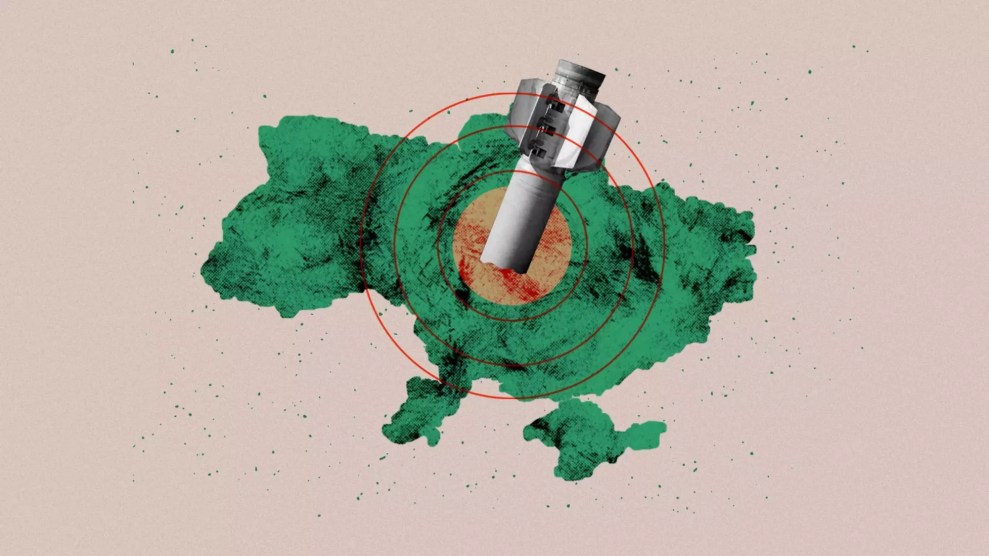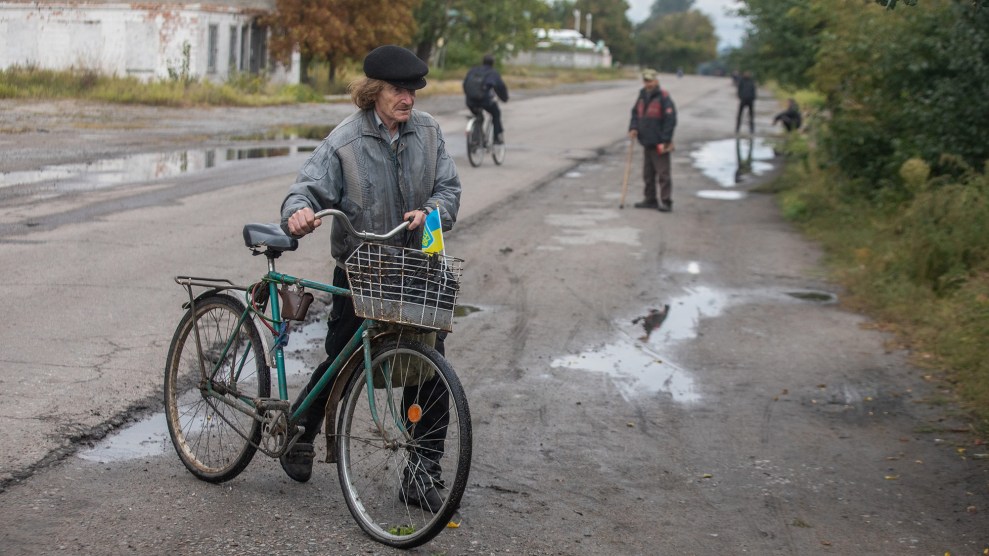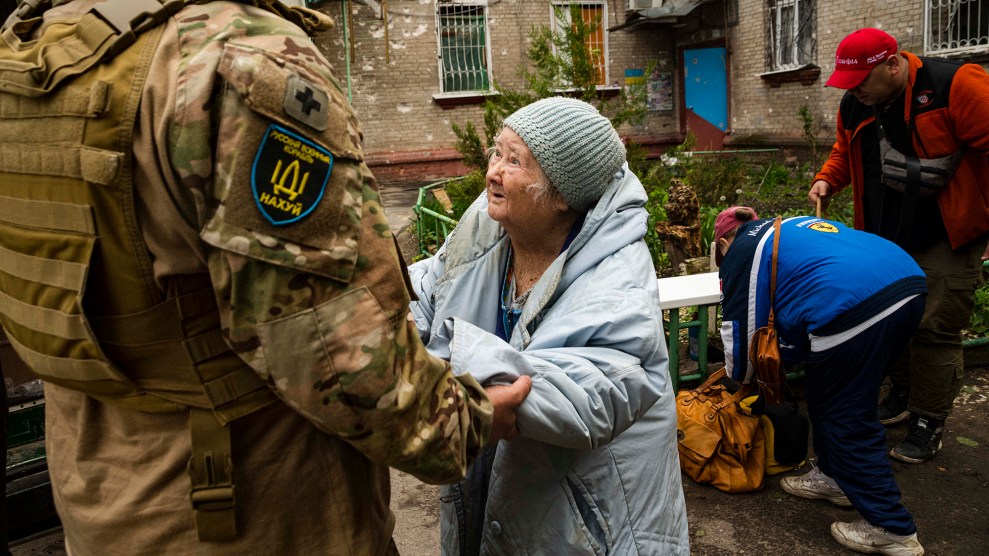The first time I spoke with Olga Shpak, I made the mistake of beginning as I often do when interviewing researchers: by asking for some basic biographical information. “I used to be a scientist,” she said, not sounding bitter, only a bit nostalgic. Now, she clarified, she’s a war volunteer.
Shpak built a storied career studying Arctic and sub-Arctic marine mammals as a researcher at Moscow’s prestigious A.N. Severtsov Institute of Ecology and Evolution of the Russian Academy of Sciences. Her work inspired some of Russia’s most significant whale conservation measures over the last decade, including protections for bowheads in the Sea of Okhotsk, an Alaska-sized body of water on the country’s Pacific coast. But in February last year, just as Vladimir Putin prepared to invade her home country of Ukraine, Shpak abruptly left, ultimately saying goodbye to her life in Russia—and the whales.
“There were relatively very few projects in Russia aimed at actually protecting marine mammals, rather than exploiting them,” Phil Clapham, a retired biologist and a leading expert on large whales, told me. “And with Olga’s loss to the war, they lost one of the absolute—probably the best one of all.”
Today, Shpak is working near the front lines of the war, helping nonprofit aid groups supply civilians and soldiers with everything from underwear and tourniquets to drones, wood-burning stoves, and pickup trucks. When we spoke, bomb sirens blared in the background, a numbingly routine occurrence for Shpak, who told me her focus had been entirely consumed by the war effort. “To do science you have to concentrate,” she said. “You have to kind of put your brain in a certain mode. And that switch is broken.”
Shpak is one of thousands of researchers whose life’s work has been set adrift by the war, as she and her peers have been forced to flee the region or stay and fight. International collaborations with Russian institutions have been put on hold, and scientists around the globe tell me they’ve abandoned or modified projects, canceled conferences, forgone necessary supplies, or lost funding. Even the world’s biggest scientific endeavors haven’t been spared: In early 2022, for instance, the European Organization for Nuclear Research, or CERN, which runs the Large Hadron Collider, the world’s most powerful particle accelerator, said it would “not engage in new collaborations” with Russia “until further notice.” Similarly, after being sanctioned by the United States, European Union, and Canada, Russia said last year that it planned to leave the International Space Station when its current agreement ends in 2024, meaning the program would lose one of its principal members. (In late April, Russia backtracked, saying it would stick around through 2028.)
Particularly concerning is the war’s stifling of Arctic science. Russia controls about half of the coastline bordering the Arctic Ocean, with roughly two-thirds of its land sitting on carbon-rich permafrost (that is, frozen soil), making the country one of the world’s most influential climate players. The Arctic also happens to be warming at up to four times the rate of the rest of the world, threatening not just the people, plants, and animals that live there—but also the rest of the planet. “All of these ocean currents, air currents, ice pack—the Arctic is a part of the global temperature system,” says Melody Brown Burkins, director of the Institute of Arctic Studies at Dartmouth College. “And as it goes, so goes the world.” In short, there are few places on Earth more in need of scientists’ help than the Arctic. And the war has reduced their research to a trickle.
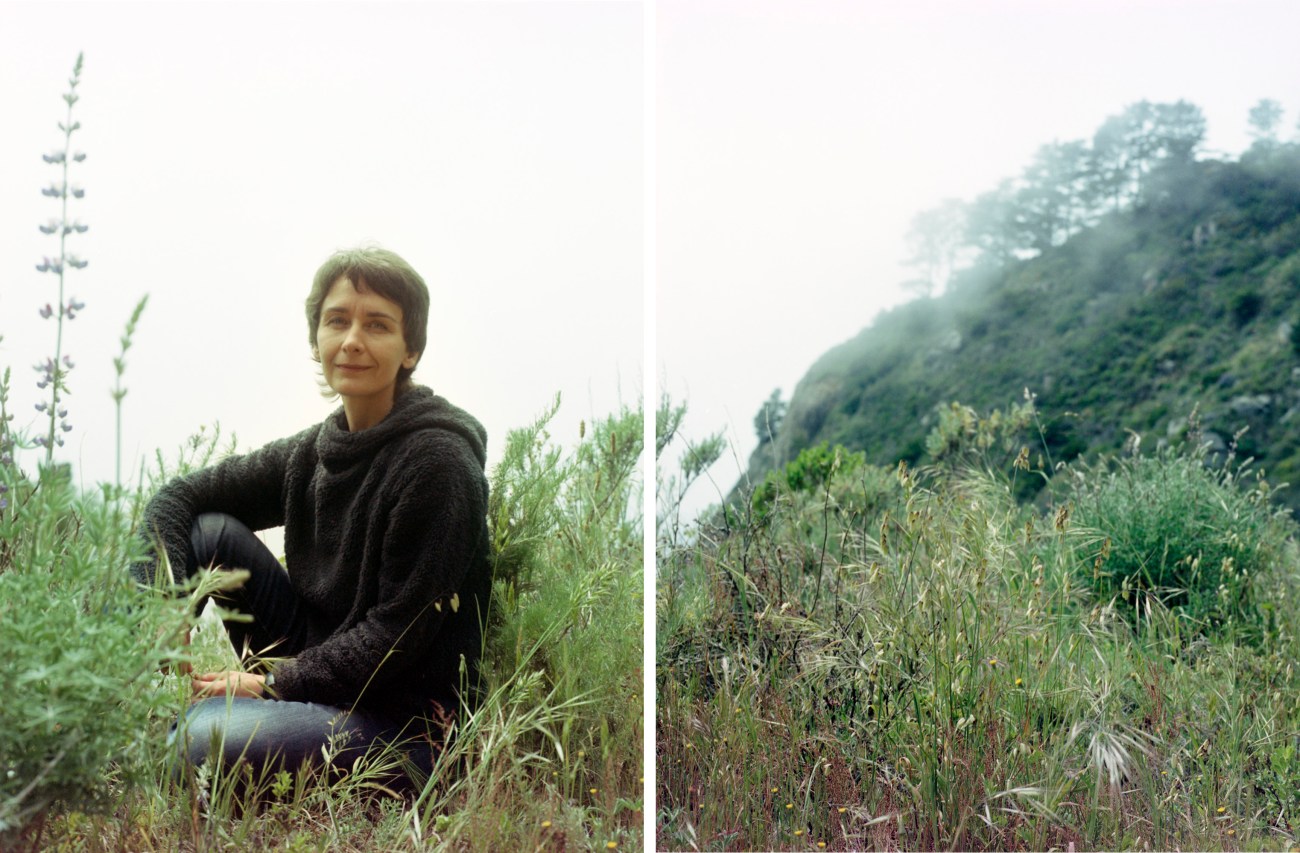
Olga Shpak in California
Chloe Aftel
“It is heartbreaking,” says Anne Husebekk, an expert in science diplomacy and a professor at the Arctic University of Norway (UiT) who chairs a committee of the International Science Council focused on academic freedom. In Ukraine, she says, “It’s not only that researchers have to fight in the war as soldiers or flee the country because they can’t stay there. But also, the infrastructure is totally broken apart. Universities do not function anymore.”

Even as a child, Shpak loved the ocean. Growing up in Kharkiv (which, like all of Ukraine, was part of the Soviet Union at the time), she’d dreamt of becoming a zoologist, even though her mother worried that her severe allergies would get in the way. “Don’t worry, I will work with animals without hair,” she said, only half-joking.
Although some do, technically, have whisker-like hair, whales and dolphins fit the bill. By 2008, Shpak had a PhD from Moscow State University focusing on whale sleep. For her thesis, she collected data as a researcher at the Utrish Dolphinarium in Moscow, an organization associated with the Severtsov Institute, where she’d later go on to work. In 2017, National Geographic credited her with helping to capture the first footage of killer whales using teamwork to hunt. Shpak was also the first scientist in Russia, and probably the world, to train and instruct a paraglider pilot to put a satellite tag on a bowhead whale from the air, according to a colleague, Vladimir Burkanov, a marine mammal researcher privately contracted with the United States’ National Oceanic and Atmospheric Administration. The method demonstrated a new technique for tracking whales in coastal areas of the Sea of Okhotsk. “It’s hard to believe how it came to her mind [to do] that,” he said with a laugh. “But she did it.”
Among the work she considers the most vital, though, was proving to Russia’s Ministry of Natural Resources and Environment that the Okhotsk bowhead whales—already on the brink of extinction due to historic whaling, climate change, habitat destruction, and other factors—were not sufficiently protected. Her work led to Russia listing the whales, which number fewer than 400 individuals, as one of 13 groups flagged for special conservation measures, including limits on industrial activity in their habitat. It was a tremendous, and rare, victory, and before the war, Shpak was slated to carry on the work and advise officials in crafting a plan to save the whales. “And then,” she said with a sigh, “I left.”
In the lead-up to the invasion, Shpak says she felt the threat of war looming “in the air.” Even after two decades of living in Russia, she knew she needed to get out. She called her mother and said, “‘Mom, if something happens, the next day, you will find out I’m either in Russian jail or in the psychiatric hospital, depending on where they decide to put me. Because I will not be silent.’” Shpak got approval from the Severtsov Institute’s director to take a leave of absence, citing “family circumstances.” The following evening, February 22, 2022, she packed a small backpack and boarded a train home.
When Russia launched its attack two days later, Kharkiv, about 25 miles from the border, was among the first targets. “It was crazy. People were really scared. And the military guys, they needed help,” Shpak says. “It was important for me to be part of the group that helped my city.” On March 1, Russian forces launched two missiles into a government building in Kharkiv, killing 29 people.
Scientific institutions have become targets too. According to a February 2023 report from the Ministry of Education and Science of Ukraine, 120 colleges or scientific institutions were at least partially damaged by Russian forces in the first year of war. Of the 60,000 scientific researchers and 35,000 support staff living in Ukraine before Russia’s invasion, an estimated 6,000 have fled, Nature reports.
Shpak gave researchers a small way to fight back. In the first days of war, she wrote an email to her marine mammal contacts—colleagues, acquaintances, friends, friends of friends—with a difficult request: She asked for money. Knowing her country’s dire need for aid, she said, “If you want to help, here’s my bank card. Here’s my account number.” She was flooded with donations, totaling upward of $25,000, she estimated.
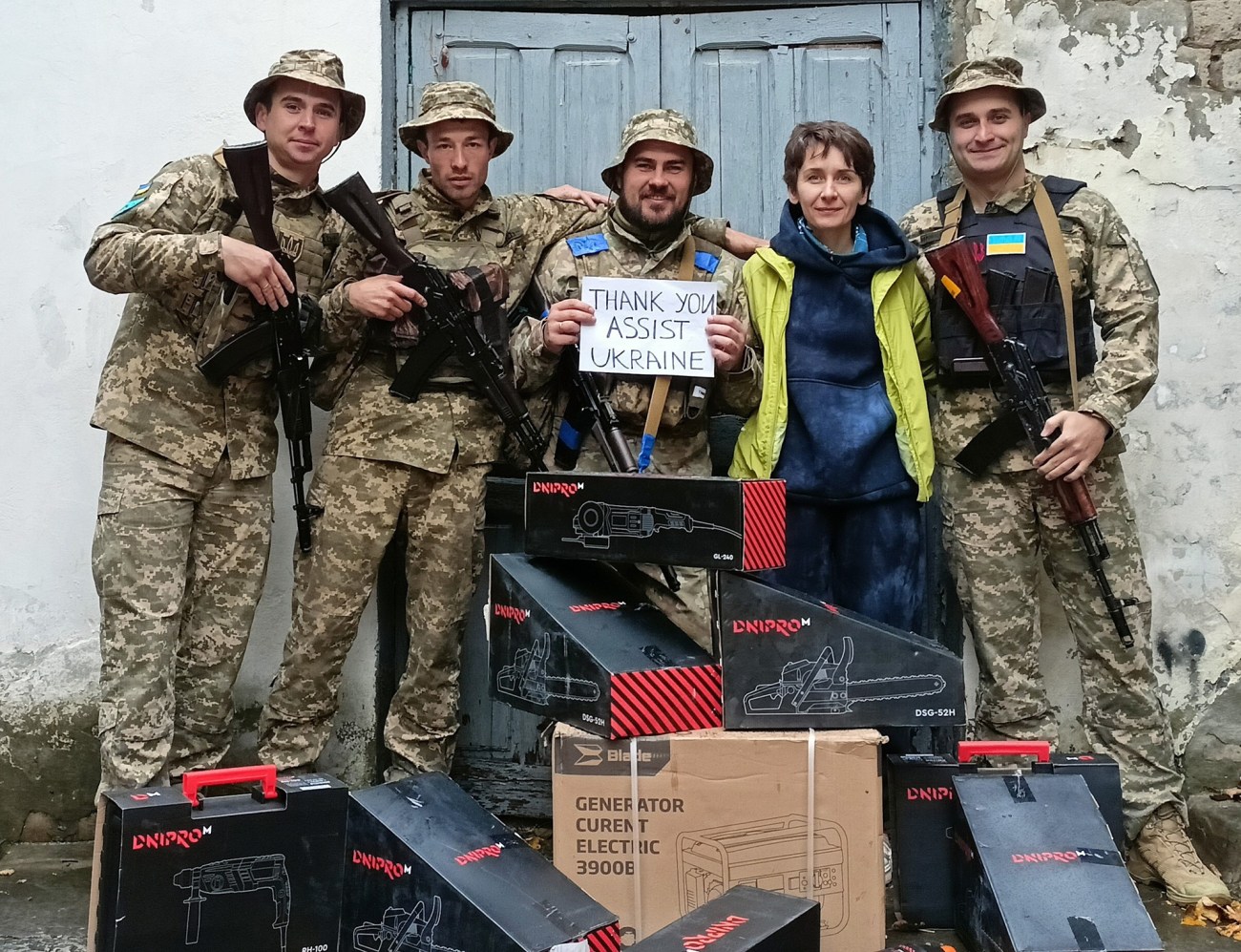
Shpak with Ukrainian soldiers, who received supplies from the American group Assist Ukraine
Courtesy Art Davidson/Assist Ukraine
Shpak’s talent for making connections, however, has come with a heavy cost. On the Sunday before we spoke, she’d learned that a friend she’d known for decades, a soldier fighting in Bakhmut, Ukraine, one of the war’s bloodiest battlegrounds, went missing in action and was presumed to be dead. He is one of several friends, relatives, and acquaintances she has lost to the war. She’d taken Monday off, but the orders for supplies didn’t let up. On Tuesday, she was back to work. “It’s like being an Amazon store,” she said. “And every damn time, it’s urgent.” She apologized if our interview felt disjointed. “I’m just losing the thread of my thoughts because I’m broken into pieces now.”

Whenever I asked Shpak about whales, it was like trying to swim against a current. Unlike her thoughts on the war, her answers felt distant and rigid. Shpak’s young colleagues, who have since taken over her work on the Okhotsk bowheads, occasionally call from Russia with research questions, but after a year of war, her once-brimming passion for science has been eclipsed. “Honestly, it feels like, fuck it, whales will live without me,” she told me. “I understand it’s their work. For them, it’s important. I’ve been a science fanatic for 25 years. But now, it’s so unimportant.”
Other displaced scientists are desperately trying to continue their prewar research. “I had to leave everything,” says Olga Filatova, a Russian whale biologist. At Lomonosov Moscow State University, Filatova had been funded by the Russian Science Foundation to study how whales learn from each other to feed on different types of prey, which reduces competition for food. “I had to quit this and say, ‘No, I can’t.’” After the war started she left the country and found a temporary position at the University of Southern Denmark but was barred from reapplying for the Russian grant for the next three years. In a separate project, she and her colleagues had been investigating a “stinky whale problem” in gray whales off the coast of Chukotka, Russia, across from Alaska, which had been brought to their attention by Indigenous groups who hunt the whales for food and had noticed the animals were giving off a “strong medical smell,” she tells me. Filatova brought samples of the whale meat back to Moscow, where her collaborators were able to identify the compound responsible for the odor. They believe it may be coming from worms in the bottom-feeding whales’ diet, but they can’t travel to Chukotka to confirm it, and chemicals necessary for further analysis are difficult to obtain due to sanctions, she says.
But perhaps the war’s biggest blow to science has come at the Arctic Council, an intergovernmental forum that once cooperated to study the region. At the time of its invasion, Russia was chair. The other members—Canada, Denmark, Finland, Iceland, Norway, Sweden, and the United States—condemned the attack and paused participation. Norway is set to take over as chair, but the future of the council remains uncertain. “We’ll see what happens,” Husebekk says. “Without Russia, it doesn’t work as well as it could. Not at all.”
As for Shpak, she’s not sure she’ll ever return to studying marine mammals. People are her priority now. “I became a biologist thinking that ‘I hate people, so I will work with animals,’” she told me. “But now I understand how it’s important and satisfying to help the community survive—I understand the importance of the word ‘community.’”


